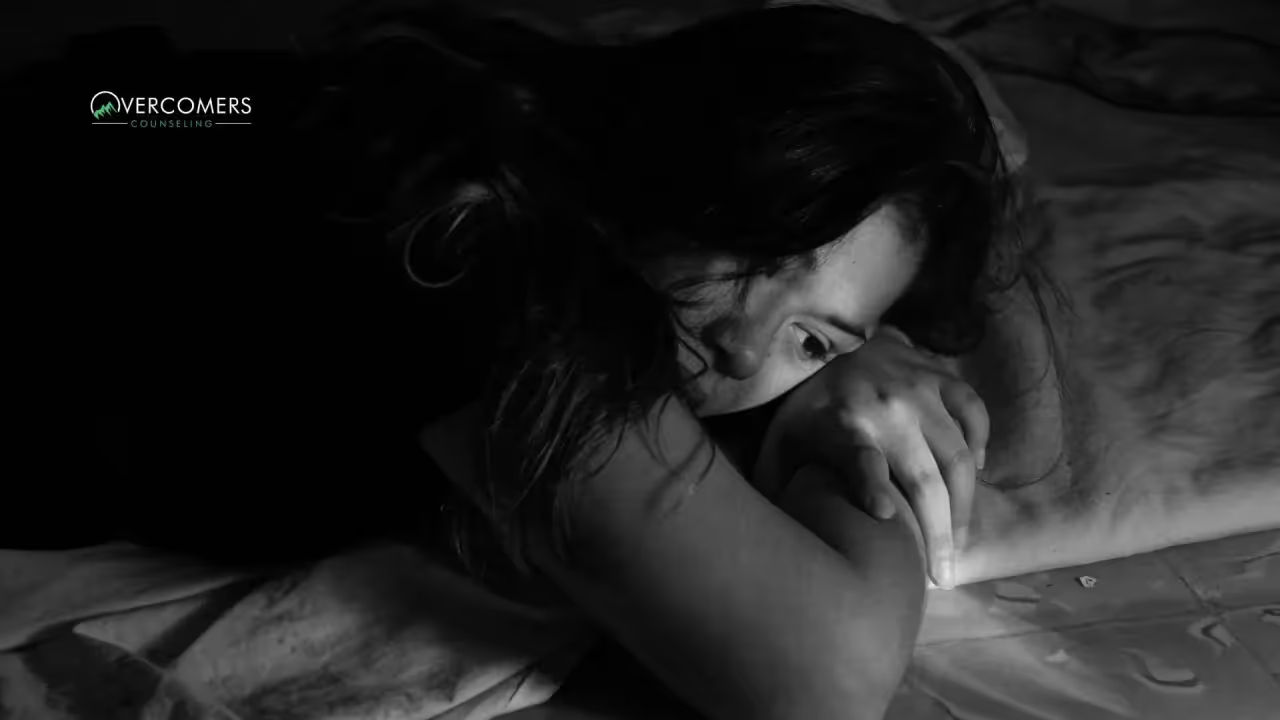Bipolar disorder is a condition characterized by sudden and erratic mood changes.Although there are no known causes of bipolar disorder, a couple of things...

Bipolar disorder is a condition characterized by sudden and erratic mood changes.Although there are no known causes of bipolar disorder, a couple of things or factors trigger it.One of the most common triggers for bipolar disorder is stress.Experiencing a stressful life event could either trigger an initial bipolar episode or increase the symptoms' frequency.A change in sleep pattern or not getting enough sleep is another common trigger for bipolar disorder.Pregnancy and childbirth are also common triggers for bipolar disorder.The hormonal changes during pregnancy and parenting responsibilities can trigger bipolar disorder.Losing a family member or loved one is another common trigger.The grief associated with the loss can lead to a manic or depressive episode.Substance abuse to cope with a stressful event or illness is also one of the common triggers for bipolar disorder.Monitoring your moods and behavioral patterns would help you to identify your triggers and manage your symptoms easily.Getting support for bipolar disorder would also help you to live a healthy and fulfilling life.Here are 5 common triggers for bipolar disorder.
Stress is one of the major and most common triggers for bipolar disorder.A life-altering or stressful event such as the physical or terminal illness of a close relative or friend, relationship breakdown or divorce, and work-related stress can trigger bipolar episodes.Conflicts with partners, family members, friends, or coworkers, and natural disasters are also common triggers for bipolar disorder.These can trigger an initial bipolar episode or lead to recurrent episodes.For instance, getting into frequent spats with your loved one could be a trigger.It could also make you stressed and lead to recurrent episodes of depressive or manic moods.Losing a job is another common trigger.The uncertainty, and emotional and financial stress it puts on you could trigger a bipolar episode.Positive stress, such as changing jobs, or moving to a new house or town, can also trigger bipolar disorder.What triggers the episode is that bipolar people might find it more difficult to adapt to the changes, conflict, and stress.Stress management and support from loved ones would help you to manage these stressful events.

A change in sleeping patterns is a common trigger for bipolar disorder.Working in jobs that require night shifts, staying up to study, the birth of a new child, and jet lag from international travel are common causes of sleep deprivation or change in sleep patterns.Sleep deprivation could also be a side effect of your prescription.Not getting enough sleep is a common symptom and warning sign of the onset of mood episodes.Sleep problems such as insomnia and hypersomnia are also symptoms and triggers of bipolar disorder.If this is your experience, promptly inform your doctor so that they can recommend a quality sleep plan or medication to help you to sleep.Maintaining consistent sleep schedules and avoiding exercises or stimulants close to bedtime would help to regulate your sleep patterns.And also reduce the risk of a relapse.
Pregnancy and childbirth trigger bipolar disorder in two ways.It could either trigger their first bipolar episode that eventually leads to a bipolar diagnosis or lead to frequent bipolar episodes.Bipolar people are prone to a higher risk of a mood episode during pregnancy or during the postpartum period - the period after childbirth.The pain and stress of delivery, changed sleep patterns, not getting enough sleep, physical recovery, and hormonal changes during and after delivery, especially the first month after delivery, are triggers for bipolar disorder.You must be constantly monitored during this period so that it does not cause devastating effects on you or the baby.Childbirth can also trigger bipolar episodes in your partner.If your partner is the one with the disorder, they might experience more hypomanic episodes due to the stress of having a new baby.Hormonal changes during menopause can also trigger bipolar disorder or worsen bipolar symptoms.
Losing a loved one is one of life's most painful and stressful events.The mourning period, funeral planning, and post-funeral activities have extreme consequences on a bipolar person.The grief associated with the loss of a family member or loved one is one of the common triggers for bipolar disorder.For some people, this might be their first manic episode.For others, their symptoms might be stable during the funeral, but they can develop manic or hypomanic episodes after the funeral.For instance, where the death was traumatic, such as death from suicide or cancer, the manic episode could be some sort of defensive mechanism for the trauma.Reality hits most times after the funeral, and the person can go into a depressive state.The person could also go into a state of anxiety, hostility, disordered speech, manic laughter, reduced need for sleep, and hallucinations.Bipolar people need all the love and support they can get after losing a close family or friend to deal with the loss effectively.
Alcohol and drug abuse are common ways people use to cope with bipolar disorder.At the same time, alcohol and drug abuse are common triggers for bipolar disorder.Substance abuse can trigger a sudden episode and, if it persists, can exacerbate manic symptoms.Alcohol use, recreational drug use such as cocaine and sedatives, are used by bipolar people to ease their manic or depressive episodes.However, they can lead to addiction and can worsen depressive symptoms, and anxiety or lead to suicidal thoughts.Prescribed drugs such as antidepressants, appetite suppressants, stimulants, and thyroid medications are also common triggers for bipolar disorder.Their side effects can trigger extended periods or manic episodes.If your antidepressants are triggering manic episodes, speak to your doctor so that they can include mood stabilizers in your prescription to help you manage the condition.Therapy is also an effective way to manage the disorder.
Awareness of the triggers helps you to provide support for bipolar disorder and control them.The common triggers for bipolar disorder are stress, sleep disturbances, pregnancy and childbirth, the death of a loved one, and alcohol and drug use.
https://lidowellnesscenter.com/10-bipolar-disorder-triggers-and-how-to-manage-them/
https://www.everydayhealth.com/bipolar-disorder/triggers-that-cause-bipolar-episode/
https://www.healthline.com/health/bipolar-disorder/bipolar-mood-episode-triggers
https://www.nhs.uk/mental-health/conditions/bipolar-disorder/causes/
Living with bipolar disorder can feel like riding a roller coaster you didn’t exactly sign up for—episodes of deep depression on one end and bursts of high energy or euphoria on the other. Everyone’s experience looks a little different, and at Overcomers Counseling, we recognize that your story deserves to be understood on its own terms.
Five common signs of bipolar disorder include dramatic shifts in mood, energy, and activity levels. This often shows up as episodes of mania—high energy, excitement, or irritability—and episodes of depression marked by sadness or hopelessness. Other signs may include disrupted sleep, racing thoughts, and impulsive or risky decisions. If these sound familiar, Overcomers Counseling can help you sort through the noise and find clarity.
There isn’t one single cause of bipolar disorder—it’s usually a blend of genetics, brain chemistry, and life experiences like stress or trauma. Think of it as a complex puzzle with several interconnected pieces. When you’re ready to make sense of those pieces, Overcomers Counseling is here to help you put the picture together.
Supporting someone with bipolar disorder starts with compassion, patience, and a solid understanding of what they’re navigating. Offer steady emotional support, encourage them to stay connected to treatment, and avoid taking their symptoms personally. And remember, caring for yourself matters too. Overcomers Counseling can help guide both you and your loved one through these ups and downs.
Absolutely. Bipolar disorder may be a lifelong companion, but with consistent treatment and support—like the kind offered at Overcomers Counseling—you can build a life that feels steady, healthy, and genuinely yours. Think of it like learning to drive on a windy mountain road: tricky at first, but totally manageable with the right guidance.